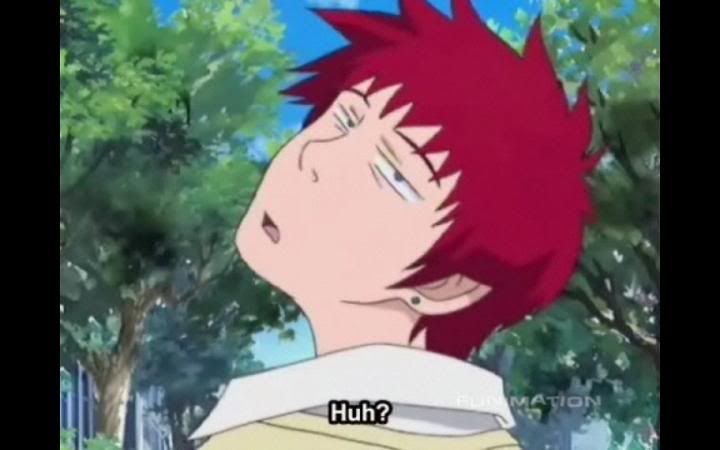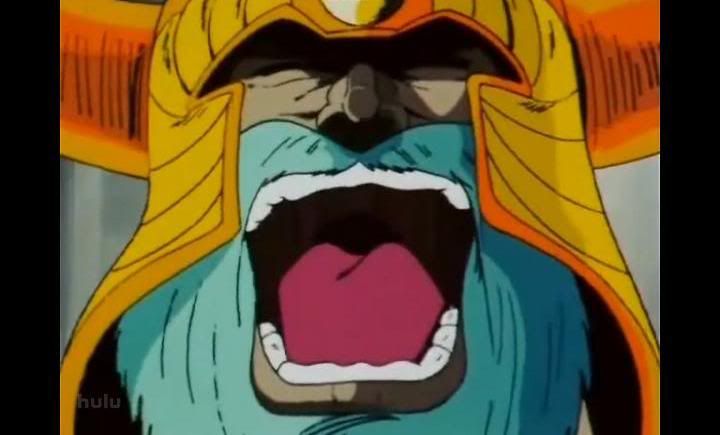Studio Spotlight: Madhouse
PostPosted: Wed Aug 18, 2010 11:05 am
The linkbacks to the previous threads are using too many images :<
This week, a long-lived studio that isn't afraid to dabble in a bit of everything and push the boundaries of the medium.

Madhouse was founded in the early seventies. Unlike a lot of the other studios we've seen, they started producing OVAs and TV series pretty quickly. As a result, they have a ridiculously huge list of works, rivalling or surpassing that of Sunrise's.
What I love about Madhouse is their willingness to do weirder, less popular shows. I consider them to be the studio that is the most likely to do experimental stuff. They've got a fairly amazing stable of directors with them, including Satoshi Kon, Hosoda Mamoru, and Masaaki Yuasa. That's not to say that they're weirdos like the guys at Shaft. They've got plenty of mainstream shows under their belt.
And I guess that's the reason for their long list of shows that have no common style. They've got a great mix of stuff and among their shows is something for everyone. They've got your magical girl covered with Cardcaptor Sakura. They've got your American garage band story with Beck. Classical literary adaptations? Aoi Bungaku. Fanservice? Ichigo 100%. Weird, trippy show? The Tatami Galaxy. Shoujo drama? NANA. Mainstream family film? Summer Wars.
Madhouse has done a lot of CLAMP adaptations, with Cardcaptor Sakura being the most well-known of them. They've also got Chobits and Kobato, the latter of which I have seen. It was a decent show, but it pretty much confirmed for me that CLAMP isn't really my thing. That said, I think that these adaptations serve as an example of how Madhouse isn't particularly tied down to a certain style. They're just as willing to do shows about girls in frilly dresses as they are about guys gambling for their life in the criminal underworld.
Dennou Coil is a perfect example of the type of show that a lot of other studios are afraid to do. Dennou Coil is an interesting take on a future society, where augmented virtual reality has just become common for younger people. It's critically acclaimed and probably pretty popular while it was airing on TV, but it was ultimately lacking in DVD sales, which meant financial failure. Of course, Madhouse's diverse and large amounts of works allow them to do this sort of thing, but I think that it's encouraging to see someone do works that don't just go for easy sales.
Masaaki Yuasa is a guy who directs shows that look very weird. The art style in any of his shows is bound to turn someone off. And yet, even in all the weirdness, the themes of his works should resonate with us. For instance, in Kaiba, we're introduced to a futuristic world that is completely alien to us. And yet, at the core of the show, it asks a very human question: what does it mean to love? Similarly, we have a very caricaturized world with very strange mechanics in The Tatami Galaxy. Like Kaiba, the story itself is something that a lot of us will have to deal with: our journey through college and dealing with the consequences of our decisions.
The horserace for my favourite theatrical anime director is always going to be between Shinkai Makoto, and the guy responsible for the above, Hosoda Mamoru. Although Hosoda doesn't have very many movies under his belt, at least not compared to the likes of Miyazaki or Satoshi Kon, the ones he has done are pretty amazing. The Girl Who Leapt Through Time is your classic time-travel don't mess with time shenanigans, from the viewpoint of a high school girl. Summer Wars is a refinement on the themes that he presented in the Digimon movie that he presented, with the addition of the importance of family.
And more! Seriously, Madhouse has a ridiculously long list of works, the breadth of which I can probably never adequately cover.
NEXT TIME

[I]One day, riding the green bike I always used to ride, I thought: “how far can I go without turning back?â€
This week, a long-lived studio that isn't afraid to dabble in a bit of everything and push the boundaries of the medium.

Madhouse was founded in the early seventies. Unlike a lot of the other studios we've seen, they started producing OVAs and TV series pretty quickly. As a result, they have a ridiculously huge list of works, rivalling or surpassing that of Sunrise's.
What I love about Madhouse is their willingness to do weirder, less popular shows. I consider them to be the studio that is the most likely to do experimental stuff. They've got a fairly amazing stable of directors with them, including Satoshi Kon, Hosoda Mamoru, and Masaaki Yuasa. That's not to say that they're weirdos like the guys at Shaft. They've got plenty of mainstream shows under their belt.
And I guess that's the reason for their long list of shows that have no common style. They've got a great mix of stuff and among their shows is something for everyone. They've got your magical girl covered with Cardcaptor Sakura. They've got your American garage band story with Beck. Classical literary adaptations? Aoi Bungaku. Fanservice? Ichigo 100%. Weird, trippy show? The Tatami Galaxy. Shoujo drama? NANA. Mainstream family film? Summer Wars.
Madhouse has done a lot of CLAMP adaptations, with Cardcaptor Sakura being the most well-known of them. They've also got Chobits and Kobato, the latter of which I have seen. It was a decent show, but it pretty much confirmed for me that CLAMP isn't really my thing. That said, I think that these adaptations serve as an example of how Madhouse isn't particularly tied down to a certain style. They're just as willing to do shows about girls in frilly dresses as they are about guys gambling for their life in the criminal underworld.
Dennou Coil is a perfect example of the type of show that a lot of other studios are afraid to do. Dennou Coil is an interesting take on a future society, where augmented virtual reality has just become common for younger people. It's critically acclaimed and probably pretty popular while it was airing on TV, but it was ultimately lacking in DVD sales, which meant financial failure. Of course, Madhouse's diverse and large amounts of works allow them to do this sort of thing, but I think that it's encouraging to see someone do works that don't just go for easy sales.
Masaaki Yuasa is a guy who directs shows that look very weird. The art style in any of his shows is bound to turn someone off. And yet, even in all the weirdness, the themes of his works should resonate with us. For instance, in Kaiba, we're introduced to a futuristic world that is completely alien to us. And yet, at the core of the show, it asks a very human question: what does it mean to love? Similarly, we have a very caricaturized world with very strange mechanics in The Tatami Galaxy. Like Kaiba, the story itself is something that a lot of us will have to deal with: our journey through college and dealing with the consequences of our decisions.
The horserace for my favourite theatrical anime director is always going to be between Shinkai Makoto, and the guy responsible for the above, Hosoda Mamoru. Although Hosoda doesn't have very many movies under his belt, at least not compared to the likes of Miyazaki or Satoshi Kon, the ones he has done are pretty amazing. The Girl Who Leapt Through Time is your classic time-travel don't mess with time shenanigans, from the viewpoint of a high school girl. Summer Wars is a refinement on the themes that he presented in the Digimon movie that he presented, with the addition of the importance of family.
And more! Seriously, Madhouse has a ridiculously long list of works, the breadth of which I can probably never adequately cover.
NEXT TIME

[I]One day, riding the green bike I always used to ride, I thought: “how far can I go without turning back?â€







